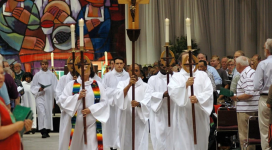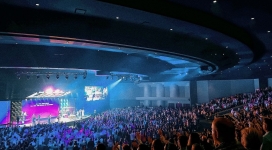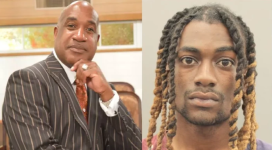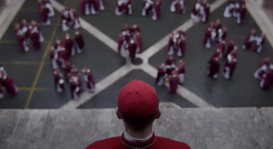Over 700 Lutherans from Australia gathered for the Second Australian Conference on Lutheran Education (ACLE II), Sept 27-29, 2004. The conference, organized by the Lutheran Education Australia (LEA) on behalf of the Lutheran Church of America (LCA), focused on how to direct Lutheran educational resources to better contribute toward a global and good society.
Following the theme, “Cross Currents – Charting a Course in a Sea of Diversity,” the keynote speaker, the general secretary of the Lutheran World Federation (LWF), emphasized the need to equip future leaders for a life in a “global village that excludes no-one.”
“The church, mosque, synagogue and temple all have the unquestionable obligation to educate for peace and co-existence,” said Rev. Dr Ishmael Noko. “But they have the potential to provide a context in which we can search for the common identity that binds us together.”
Noko explained that while inclusiveness within educators may not come easily, the church’s voice against exclusion may come more readily if it is grounded in “our oneness in Christ - and in compassion, rather than in mere sympathy.”
Noko also urged the ACLE II delegates to act in a way to unite all peoples on one table, “not just out own.”
“HIV/AIDS in one part of the world is HIV/AIDS everywhere,” Noko said. “If Christ is our model and guide, how will we respond to those who our societies have rejected because of their HIV status – with acceptance and compassion, or with judgment and exclusion?”
In terms of inter-faith relations, Noko said he believes there is no such thing as a religious war in this era. Rather, Noko said religious diversity was being manipulated for other political ends.
“My fear in the current global context is that we, the peoples of the world, our political [as well as] religious leaders, have permitted extremists to hijack the course of our history,” said Noko.
“The terrorist attacks and atrocities perpetrated by certain Arab Muslim groups and individuals have encouraged prejudice against Arabs, as well as feeding anti-Muslim sentiment,” Noko said.
Noko also said racism is hidden beneath the shield of prejudice.
“The undoubted difficulties of fulfilling international commitments with regard to refugees and asylum-seekers have served as rationalizations for policies that are, quite frankly, racist,” said Noko.
Therefore, in lieu of the unnecessary conflicts, Noko encouraged educators to act as the key to a world of interfaith and personal relationships. Students, he said, are very diverse, and so could provide the opportunity for global citizenship in the 21st century.
“A clear focus must be given to the creation of curricula, structures and processes that present and explore this diversity and that promote encounter, while at the same time containing the initial fears and anxieties that might arise,” said Noko.
Following Noko’s keynote presentation, the LEA director Dr Adrienne Jericho gave a short address, emphasizing the same theme of “Charting a Course in a Sea of Diversity.”
“What can we learn from each other? How can we support each other? These are important questions that a global summit could address,” said Jericho. “But, more importantly, such a summit should focus not just on how we can help each other, but also on how we can together help the world to grow together as a family in all its diversity.”
“As educators it is our privilege and responsibility to equip the next generation for the challenges of 21st century living,” he said. “We need to ensure that our policies and practices contribute to the goal of preparing our young people for a world that embraces all of humanity in the global family, excluding no-one.”







